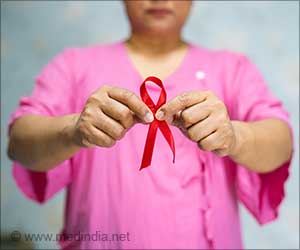When breast cancer cells run low on glutamine, they rely on alternative pathways, and research shows that depleting both glutamine and PHGDH can hinder their growth.

The unique catalytic properties of PSAT1 mediate metabolic adaptation to glutamine blockade
Go to source). Now, Cold Spring Harbor Laboratory (CSHL) Assistant Professor Michael Lukey has found a way to deprive cancer cells of both a vital nutrient and their backup supply.
‘Did You Know?
The five-year survival rate for breast cancer is approximately 90%, but this varies significantly depending on the stage at diagnosis. #breastcancer #glutamine #nutrients’





In lab experiments with breast cancer cells, patient-derived tissue models, and mice, this strategy killed breast cancer cells and shrank tumors. The five-year survival rate for breast cancer is approximately 90%, but this varies significantly depending on the stage at diagnosis. #breastcancer #glutamine #nutrients’
How does this work? Let’s go back to cancer metabolism. Aggressive cancer cells avidly consume an amino acid called glutamine. They use this vital nutrient to generate the energy and materials needed to grow and replicate.
Previous studies have shown that starving cancer cells of glutamine or preventing its conversion into metabolites can stop the cells’ growth in the lab.
However, in recent clinical trials, breast cancer patients didn’t benefit from a drug taking this approach. This suggests that breast cancer cells can adapt and find a way to live without glutamine.
Targeting Cancer Metabolism
Lukey and postdoc Yijian Qiu saw the same thing in their lab. They noticed that breast cancer cells adapt to glutamine starvation by switching on a pathway that generates a critical metabolite called alpha-ketoglutarate, normally derived from glutamine.Advertisement
“That made us think, could we exploit this for cancer therapy?” Lukey recalls. “Could we target glutamine metabolism? We know the cells adapt to that. So, could we simultaneously target their adaptive response by inhibiting the pathway?”
Inhibitors of both metabolic pathways are now under further investigation. Lukey notes that these pathways might be especially important for breast cancer metastasis to different tissues, including some that are very difficult to treat. “Brain metastases in particular lack any effective therapies,” Lukey explains.
Lukey hopes his lab’s combination therapy could ultimately improve the efficacy of glutamine metabolism inhibitors in the clinic. This could mean effective new treatments that target cancer’s metabolic addictions.
Reference:
- The unique catalytic properties of PSAT1 mediate metabolic adaptation to glutamine blockade - (https://www.nature.com/articles/s42255-024-01104-w)
Source-Eurekalert














